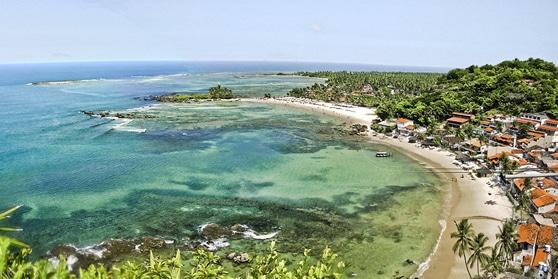
Brazil Carnival
History of Carnival in Salvador
The history of the most african carnival of Brazil, the Carnival in Salvador, Bahia.
Although Salvador is the capital of the Brazilian state of Bahia, the city has a strong African influence. The city’s easy going population is famous for holding street parties with the biggest one celebrated during the Carnival, a spirit that has put the Carnival in Salvador in the Guinness Book of World Records as the biggest street party on the planet. For local folks, the Carnival in Salvador is more about celebrating the spirit of happiness. While Rio is famous for its samba schools, the Carnival in Bahia is more of a street Carnival with strong participation by the locals.

Early History of the Carnival
The roots of the Carnival trace back to ancient Greece, with the spring festival held in the honor of Dionysus, the god of wine. Similar feasts were held by the Romans in honor of Bacchus and Saturnalia, with slaves and masters exchanging clothes in a day marked by drinking and rejoicing. The feast was modified by the Roman Catholic Church with a week of celebrations leading up to Ash Wednesday to mark the beginning of Lent. Carnival street parades with music bands and horse drawn floats became popular in the 1850s with the sounds of the samba taking over in 1917. The Afro Brazilians from Bahia were the driving force of samba beats that soon spread from Bahia to Rio with the abolition of slavery in 1888.
Carnival in Bahia
Salvador remains the musical capital of the state of Bahia and undoubtedly the largest center of African culture. Bahian drummers and their unique beats have influenced many musicians from around the world. These beats have taken over the Carnival in Salvador where hundreds take to the streets during the Carnival week. The overwhelming sound of the drummers is the highlight of the Carnival in Bahia. The trio eletrico bands that sing and dance atop motorized floats play until the wee hours of the morning.
Reestablishing Black Pride
The ‘Blocos Afros’ are a percussion ensemble portray what is known as the ‘negritude’ movement to re-establish Black Pride. The movement was launched by a group known as Filhos de Gandhi or Sons of Gandhi. So passionate are its followers that the party lasts from noon to around 7 am the next day. Among the popular blocos at the Carnival in Salvador are Dida, Olodum, Timbalada and Ara Ketu which are the epitome of African culture in Bahia.
Carnival Circuits
Apart from the Blocos Afros who have been a tradition at the Carnival in Bahia for centuries, there are a number of local and national artistes who form an integral part of the Carnival celebrations. Joining in the celebrations are over 600,000 revelers from neighboring municipalities as well as tourists from all over the world. As per tradition, there are three main circuits at the Carnival in Salvador, which include the Campo Grande - Praça Castro, Barra - Ondina Circuit, and Pelourinho Circuit. Special grandstands are set up in the neighborhood of Campo Grande for those who prefer to watch the show rather than participate. The Carnival in Salvador commences with the King of the Carnival, Momo, being handed the keys to the city on Carnival Thursday.